Team Basil has ended up at Campsite Op der Sauer simply through the accident of it being the nearest campsite to the vet we intend to use to worm the dogs. It has been cold, windy and wet, so it is a good acclimatisation to life back in a wintery Britain.
I knew from Google maps that the vet’s is within walking distance of our campsite and so this morning we decided to find the vet’s, to make it easier for tomorrow and at the same time to look round the town of Diekirch. The vet was easy to locate and after that we walked into the Diekirch’s old town centre.
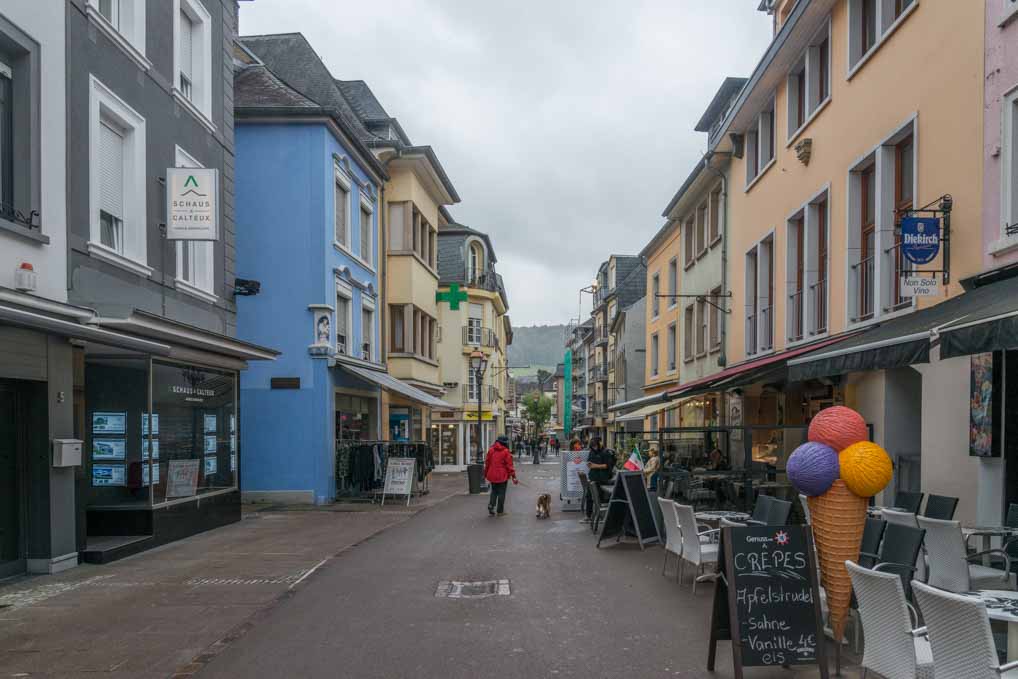
Diekirch High Street
As we walked along the high street we were overtaken by dozens, of what looked like, sixth form students beginning their lunch break. Anyone from Britain will know that there is constant criticism about our children’s diets. Well all parents will be relieved to know that it is not just British kids. As we reached the town centre there were long queues forming outside the pizza and burger joints as children grabbed a range of unhealthy lunches: pizza, burger, chips, chip sandwiches and anything else with a high fat content! Some places seemed to be set up for the sole purpose of serving these young consumers of fast food.
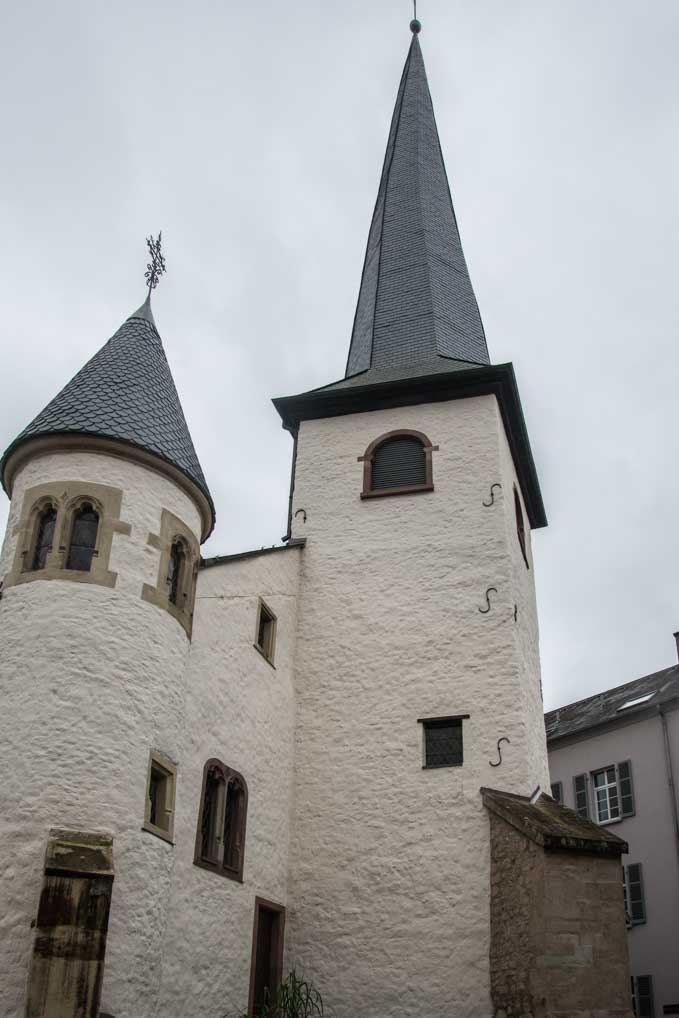
The best shot I could obtain of “The Old Church”
Diekirch was not a very prepossessing place. I went into the tourist information office and the lady gave me a map. I told her that we knew nothing about the town and asked advice as to what was worth visiting. She told me the old church and the new church! I’m not sure why they need a tourist information office if that is the sum of their attractions.
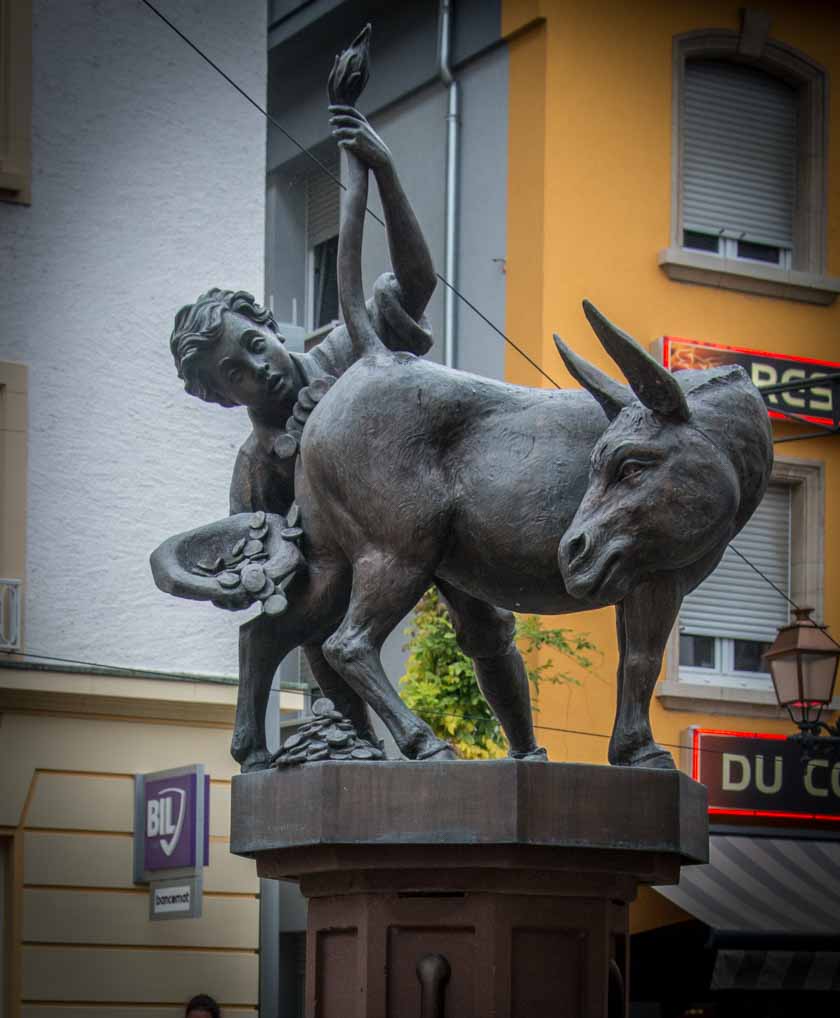
A strange statue on top of a water feature with a man getting money out of a donkey’s bottom! What is that all about?
In fact I happen to know she missed out one of the highlights and that is the Luxembourg National Military History Museum. I am aware of this place because I picked up a leaflet from reception last night. The photos of the museum look very unattractive and we didn’t give it a visit. The leaflet says the highlight is a “diorama of the night-time Sauer river crossing at Diekirch on January 18, 1945 by units of the 5th US Infantry Division”. As you may have guessed from the name of our campsite, we are currently parked next to the River Sauer and anyone expecting a diorama of a proper military river crossing, like the Rhine, will be sorely disappointed. The river is about 5 metres across and suspect the river crossing consisted of the soldiers wading across in about 10 seconds!
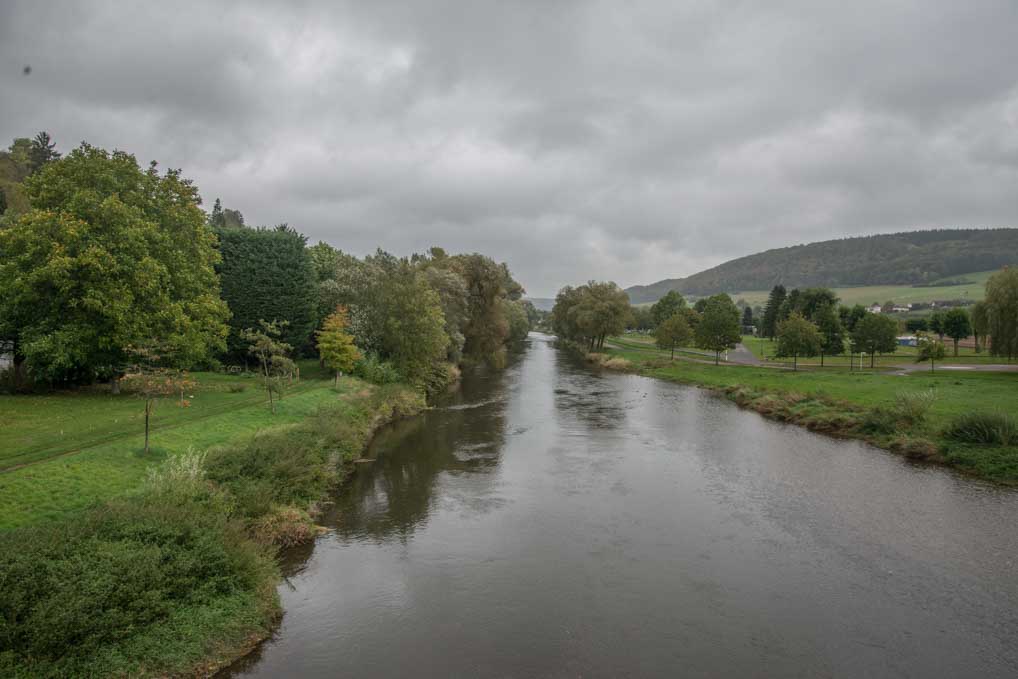
The River Sauer with our campsite on the right
Sarah has come over all creative this afternoon! Last year we went to the excellent Cambridge Folk Festival and Sarah did a willow weaving course. She also wore flowers in her hair, but that’s another story. Walking back from Diekirch she spotted lots of willow trees on the banks of the aforementioned River Sauer and someone had been kind enough to prune them and there were plenty of willow fronds to pick up, which she duly did and carried them back to Basil. At the folk festival all she made were dragonflies, but this afternoon she decided she would make a willow bowl to hold a plant pot. I was sceptical, but as usual wrong to be. For a first attempt and without any instructions she has made a lovely little basket cum bowl.
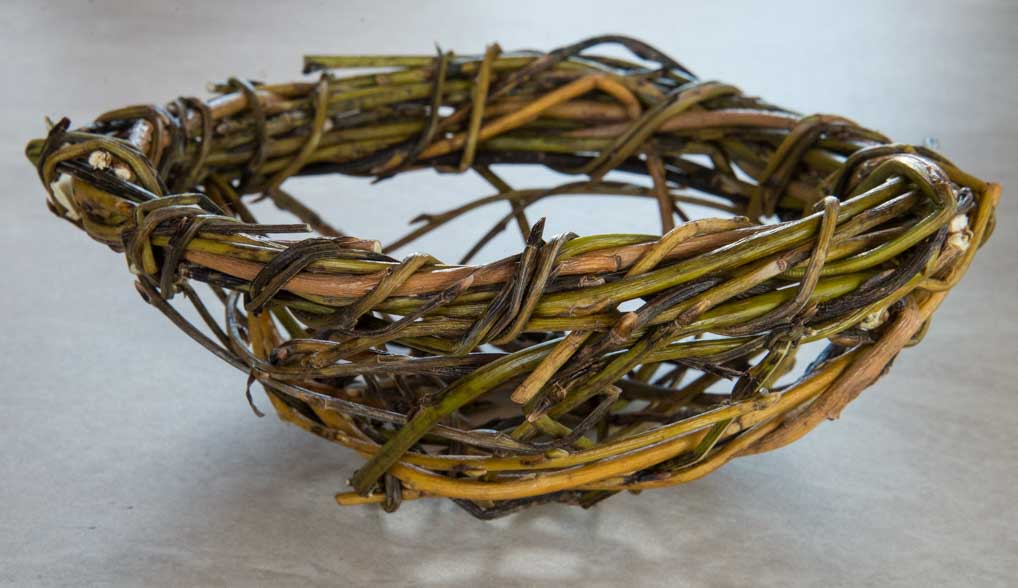
Sarah’s Willow Bowl cum Basket
Anyone who has travelled in Belgium will know that the issue of language is a fraught one, especially if you don’t speak Flemish. When you go into a shop, if your second language if French the initial inclination is to speak French. French is an official language of Belgium after all. I have long since learnt that in Flemish areas they often do not appreciate French being spoken and so I now just use English, which most Flemish people seem to speak.
The same problem arises in tiny Luxembourg, it turns out. As we wandered around Diekirch we could hear people were speaking a language unknown to us. I presumed it was Luxembourgish, but wasn’t sure. When I went into the bakers, since I know no Luxembourgish, I asked in English and the person serving was fluent. In a tiny country like this I had assumed people would speak Luxembourgish, German and French, which are all official languages. However when I went into the “pub” next to the campsite to book a table for tonight, I got into a conversation with the waitress about what languages were spoken in this area of Luxembourg and she told me Luxembourgish and German but not French! She of course spoke very good English. So now I’m confused. Do I try my French in Luxembourg, my very poor German or just stick to English? We are meeting up with my brother and his family tomorrow and his partner is Belgian through and through and a linguist, so I am sure she will fill me in with all the details!
